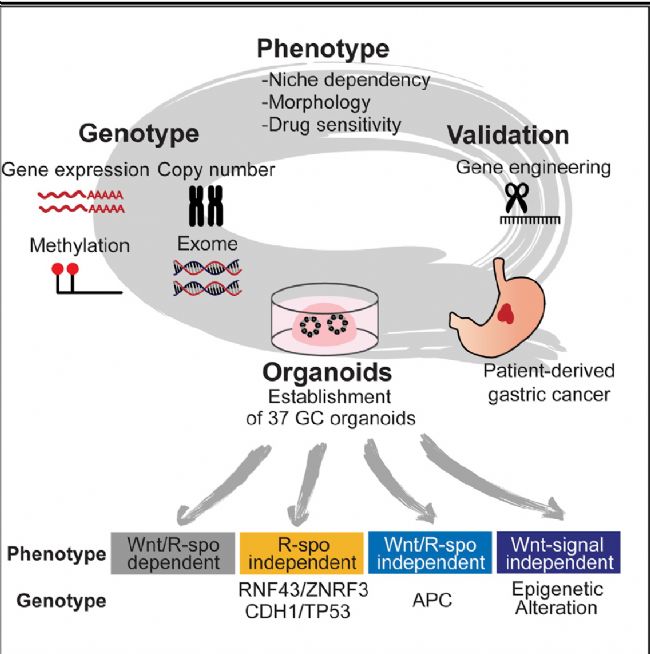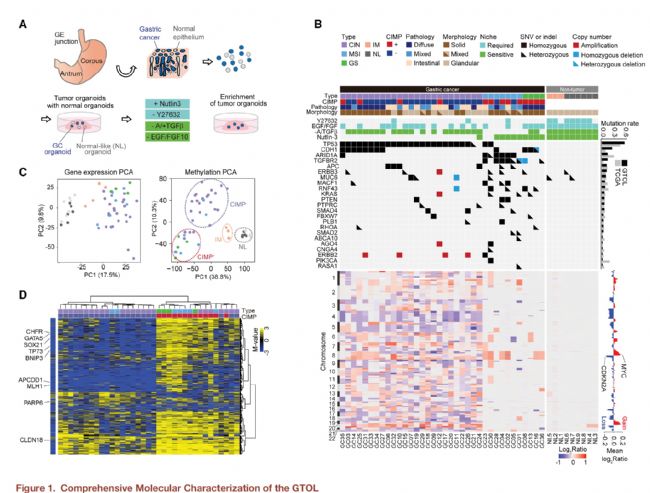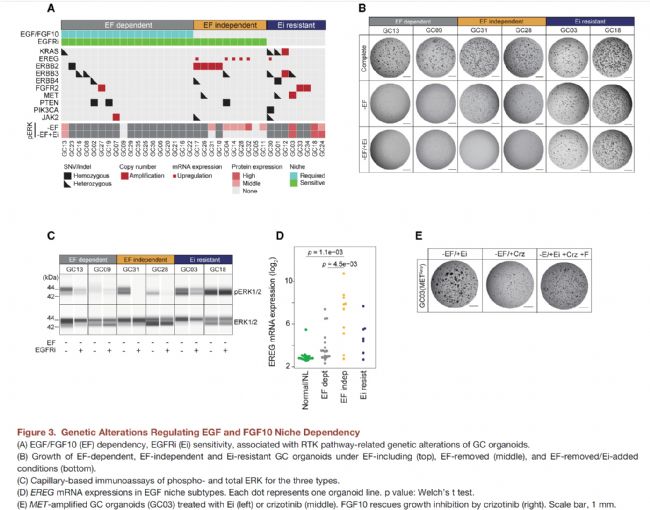Gastric cancer is one of the major cancers in China, with hundreds of thousands of people dying every year from stomach cancer. Despite the rapid development of cancer research, gastric cancer research is relatively lagging because there is no suitable research model.
On August 9th, 2018, the top magazine "Cell" published an article from the Keio University School of Medicine in Japan, Otsuka Pharmaceutical Co., Japan, National Cancer Research Center Hospital, Divergent Routes toward Wnt and R-spondin Niche Independency during Human Gastric Carcinogenesis, the authors used surgical resection, endoscopic biopsy, ascites collection and other methods to obtain gastric cancer patient cell samples, through tissue culture to establish 37 cases of gastric cancer patients with organs for gastric cancer research. These include rare genetically stable gastric cancer samples.

The authors used patient cells to establish gastric cancer organs and analyzed their molecular characteristics.

To further investigate the genotype-phenotype correlation in gastric cancer, the authors focused on the relationship between niche factor dependence and gene mutation. The authors found that gastric cancer organs with ERBB3 or PTEN mutations still depend on the growth factors EGF and FGF, but the gastric cancer organs expanded by ERBB2 or ERBB3 are no longer dependent on EGF and FGF . The authors divided 37 gastric cancer organs into EGF- dependent, non-dependent, and EGFR inhibitor resistance categories. Because the sample of organs and organs derived from gastric cancer patients is extremely precious, the authors chose to use ProteinSimple Wes based on capillary electrophoresis ultra-micro sample western blot technology to detect ERK and its phosphorylation to reflect the dependence on EGF.

In the WNT pathway, gastric cancer organ research found that tumors activate the WNT pathway through multiple pathways: WNT autocrine, AXIN2 (WNT target gene) overexpression, APC mutation or deletion, RNF43 or ZNRF3 deletion (RNF43 and ZNRF3) degenerate WNT receptor LRP And Frizzled), R-spondin autocrine (R-spondin binds and stabilizes WNT receptor LRP and Frizzled).
Of the Wnt CA gastric cancer organs, 4 cases contained biallelic APC mutations or deletions. Although the authors could not detect the APC gene changes in the other two Wnt CA gastric cancer organs, Wes capillary immunoassay showed loss of APC protein .

The research unit published an important study of pancreatic cancer organs in the Cell Publishing Group's other top journal , Cell Stem Cell , in March 2018 , Human Pancreatic Tumor Organoids Reveal Loss of Stem Cell Niche Factor Dependence during Disease Progression.
Small Safe,Smart Safe,Electronic Safe,Portable Safe Box
Hebei Yingbo Safe Boxes Co.,Ltd , https://www.ybsafebox.com